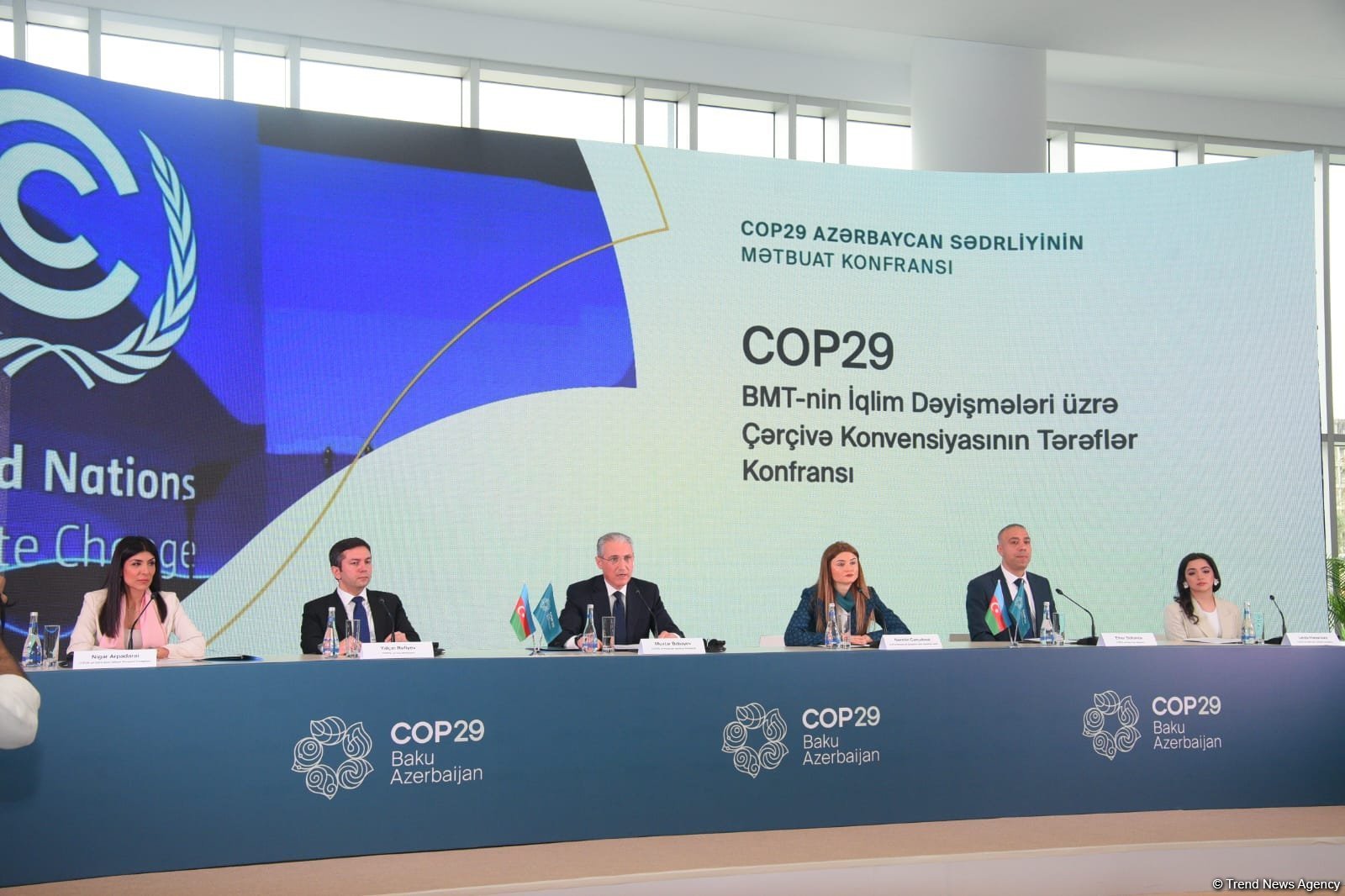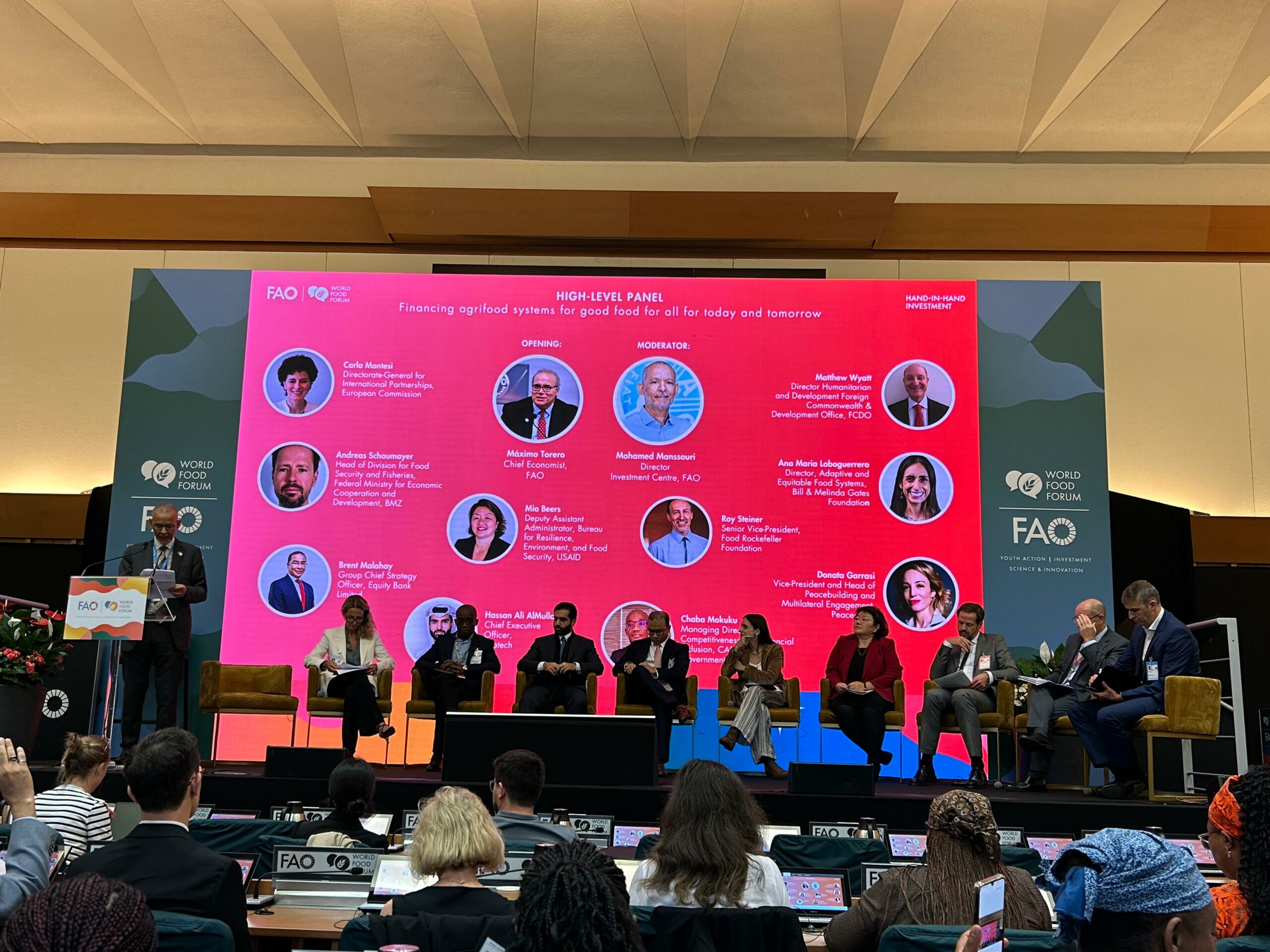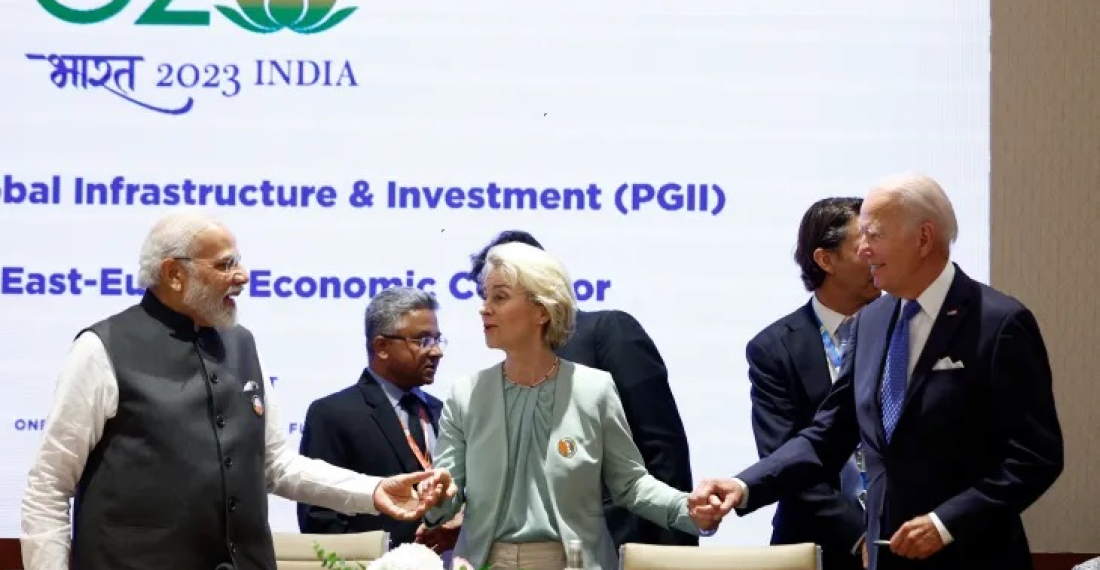COP 29: Western media coverage and perspectives
| COP29 is scheduled to take place this year from 11 to 22 November in Baku, Azerbaijan‘s capital. Although media coverage of COP29 remains limited for the time being, two main angles are emerging in the French and international press. Firstly, the unease surrounding the country chosen to host the event – Azerbaijan, a leading gas power criticised by the West for its authoritarian nature. This is coupled with a general sense of pessimism about the outcome of this year’s event, given the conflicts in Ukraine, Gaza and Lebanon, as well as the weight of the fossil fuel lobbies on the discussions. Secondly, financing will be at the heart of this COP, falsely perceived as being of secondary importance. At the core of the negotiations this year, the negotiators seem far from finding a solution, as the proposed initiatives are based on non-binding commitments, in a context where the fight against climate change has lost importance in the order of international priorities. |
1. Azerbaijan to host the COP climate conference: a default choice that embarrasses Western negotiators
a/ The Western press, particularly in Europe and the United States, is highlighting persistent unease about the selection of Baku to host COP29. After Egypt in 2022 and Dubai last year, Azerbaijan becomes the third fossil fuel-producing country to host this international climate conference.
This year, it was the turn of a country in Eastern Europe or the Caucasus to host the COP. The controversial appointment of Baku is largely due to geopolitical circumstances: the host country of the COP is chosen by consensus, and for this year’s event, Russia vetoed several proposals, deeming them hostile to its ‘special operation’ in Ukraine. Azerbaijan ended up being the only remaining candidate to host the event. However, it represents an opportunity for Europe to strengthen its ties with a major gas power, at a time when it is striving to reduce its dependence on Russian gas.
b/ Mukhtar Babayev, Azerbaijan’s Minister of Ecology and Natural Resources and a former executive of the state-owned oil company SOCAR, has been appointed President of COP29. His background is not unlike that of his predecessor Sultan al Jaber, President of COP28 and Managing Director of Abu Dhabi’s national oil company. Babayev himself acknowledges that Azerbaijan ‘is not known for its ideas on the green transition’, emphasising that this is a very new issue for the country. Azerbaijan now faces the challenge of bringing oil-producing countries such as Saudi Arabia, historical emitters such as the United States, and vulnerable nations such as Fiji and Vanuatu to the same table to define a common trajectory. Although COP28 in Dubai marked a step forward by calling for the abandonment of fossil fuels for the first time, the growing presence of lobbies from these industries continues to weigh heavily on the discussions.
c/ The Western press was quick to point out that the regime of Ilham Aliyev, President of Azerbaijan, is considered to be one of the most repressive in the world
The media are therefore raising many questions about the legitimacy of organising COP29 in such a context. A number of commentators have brought to light Europe’s attitude: in its quest for new gas supplies to replace Russia’s, it seems to be turning its back on human rights values by prioritising its own energy interests.
Some observers have criticised Switzerland in particular for its lack of accountability in this respect, as it is home to the headquarters of SOCAR, Azerbaijan’s state-owned oil company. The Swiss delegation to COP29 has already announced that it will focus exclusively on climate issues, thus avoiding any discussion of the criticisms levelled at Aliyev’s regime. Given this complacency, the press believes that Ilham Aliyev can approach the conference without any concerns.
2. The climate financing issue and diplomatic inertia in a tense international context
a/ Many are referring to COP29 as the ‘finance COP’, seeing it as a major opportunity to bring climate financing in line with estimated global needs. Le Monde reports that at Climate Week in New York, which ended on Sunday 29 September, and at the United Nations General Assembly, some States showed signs of progress, but there is still a long way to go. One of the main objectives of COP29 is to define a new global target for climate financing.
This target is intended to replace the one previously set in Copenhagen in 2009, which called on rich countries to mobilise $100 billion a year to help developing countries, an amount that will be painfully close to being achieved by 2022. However, despite the emphasis placed on freeing up funds, almost all the fundamental elements of the New Collective Quantified Goal are still being contested, whether in terms of the contributor base, the scale of funding involved or the articles of the Paris Agreement at stake. While several contradictory options are on the table concerning the amount, the donors and the beneficiaries, the global context, marked by the conflicts in Ukraine, Gaza and Lebanon, has pushed the fight against climate change to the back burner, according to Anabella Rosemberg of the Climate Action Network. Therefore, before Belém, the Baku COP will have to work on finding creative solutions to these budgetary problems.
b/ A further concrete issue to be addressed at this COP29 is the preparation of the next cycle of Nationally Determined Contributions (NDCs), ahead of COP30, setting out countries’ emission reduction commitments to meet the 1.5°C target. The quinquennial reviews of these NDCs, initiated in 2015 and then renewed in Glasgow, will be entering their third cycle. This constitutes a strategic step, during which each country will have to update its plans and adjust its overall climate strategy.
However, a pernicious dynamic seems to be emerging: several so-called Annex 1 countries to the United Nations Framework Convention on Climate Change (UNFCCC) are making their climate ambitions conditional on the funding that the most advanced countries will put on the table, which could slow down commitments in Belem. COP29 will also focus on the completion of Article 6 on carbon markets, a priority for many developing countries and the G77, which are awaiting clarification before increasing their climate ambitions.
NDCs are due to be submitted in February 2025. In Europe, discussions on the NDCs are focusing on the European Commission‘s draft, which proposes a 90% reduction in greenhouse gases by 2040. This proposal is not in line with the 2035 timetable for the NDCs, and still raises the sensitive issue of burden sharing within the European Union, where a consensus on targets has yet to be reached.
c/ For the time being, the Azerbaijani Presidency is proposing fourteen voluntary initiatives, two of which are devoted to climate financing. Inspired by the presidency of COP28 in Dubai, this series of initiatives covers a variety of subjects, such as expanding electricity storage, reducing methane emissions from waste, and promoting hydrogen. However, these proposals remain non-binding, allowing countries to choose freely whether or not to commit to them.
| Expectations for COP29 are modest this year, with a reduced capacity of 40,000 participants, reflecting a more restricted organisation. This event remains crucial to the future success of COP30 in Brazil, which will be sending a strong delegation to support the Azerbaijani Presidency, with the aim of reaching a financial agreement sufficient to prevent some of the least developed countries from reducing their ambitions. The outcome of the US elections, scheduled for 5 November, could also play a role at the negotiating table, in particular in the event of Donald Trump’s victory, as he has promised to once again withdraw the United States from the Paris Agreement. This prospect has prompted many companies to bring forward their climate announcements to alternative forums, such as Climate Week in New York or the United Nations Conference on Biodiversity (COP16) in Colombia from 21 October to 1November, in anticipation of the big event in Belem in 2025. |
Marc Reverdin, Managing Director, mr@reverdin.eu
If you would like to discuss the political situation further and understand what impact it will have on the business climate and macroeconomic framework, as well as on regional and international policy, please do not hesitate to contact us.
We help our clients navigate political and financial dynamics from local to global.





